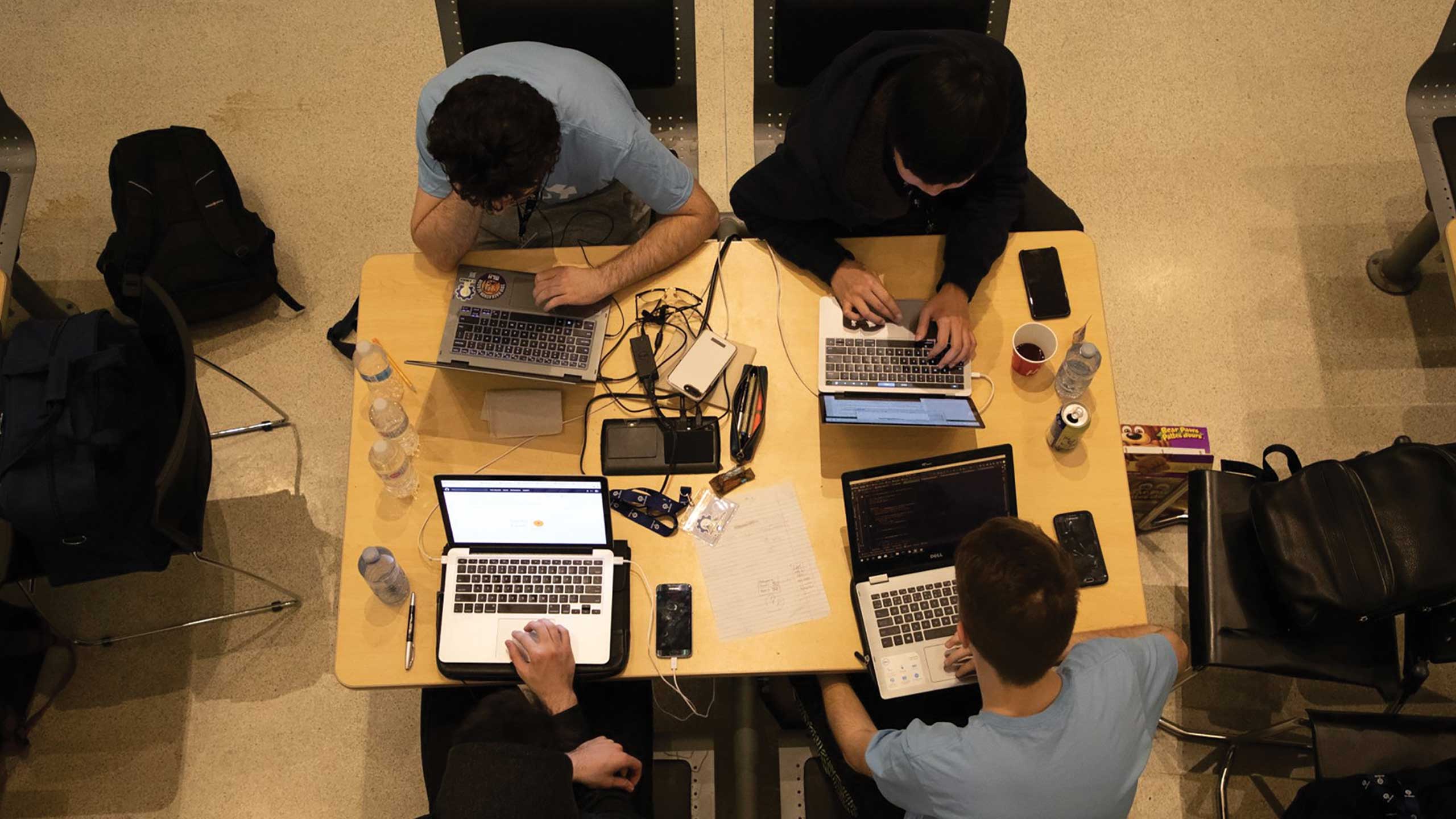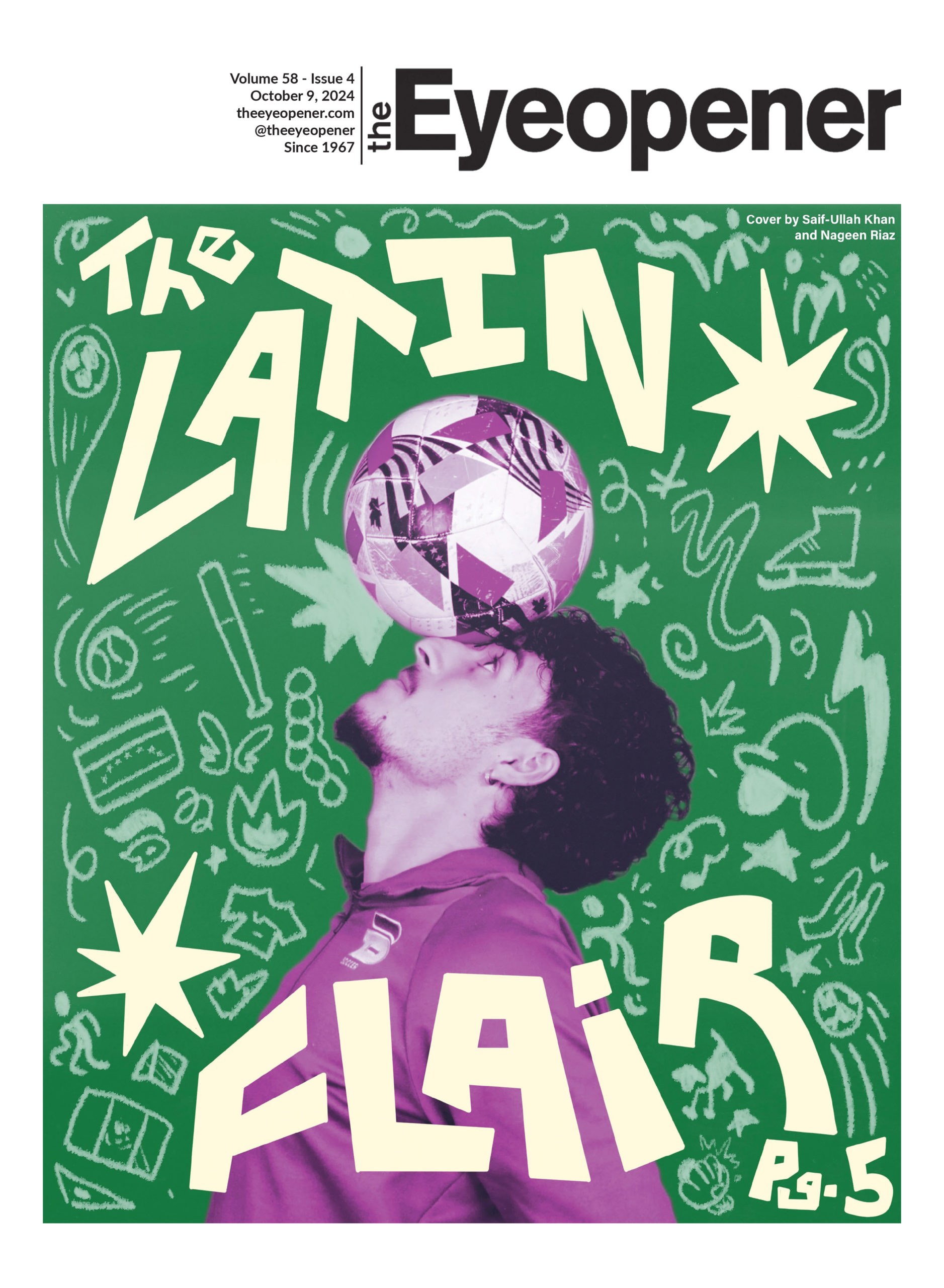By Minh Truong
Going virtual again for the second year in a row, RU Hacks 2021 is aiming to be a more interactive online hackathon than last year, according to its organizers.
The student-run hackathon is hosting its fifth annual event in April, and the second time virtually due to the pandemic. Along with the main competition, there will also be interactive online workshops and networking sessions for participants.
For co-chair Johnny Libenzon, the goal is to keep the participants engaged. “Instead of having it be where you sit down and watch workshops, you can actually meet the hosts and talk to other hackers, mentors, sponsors online through facilitated discussions,” he said.
Libenzon defined the hackathon as a coding competition. Hackers, or participants, will form teams to make a collaborative tech product. The final result will be judged based on complexity, innovation, creativity, social impact and so on, according to Libenzon.
Co-chair Annie Yang says that the hackathon is more than just a competition. “It’s a place where people could get mentorship,” said Yang. Participants can get resources from sponsors and people in the industry who can give helpful guidance, according to the co-chair.
“We want to make sure it’s a place for people to get together and work on things that they might be scared to get into”
Building on last year’s event, Yang hopes to utilize the advantages of the online setting. “People don’t need to physically move to a different room. People don’t need to be setting up tables and chairs,” said Yang. “All that time is now empty and we can do something else in that time.”
Participants will have 48 hours to work on their project instead of the regular 36 hour timeframe. Yang hopes the extra time can help increase the quality of the final product and enable hackers to participate in more networking events.
The Ryerson Game Maker’s Union, Ryerson Women in Engineering and the Ryerson Women in Computer Science are among the groups that Libenzon is bringing on board for the event. “We try to bring in as many speakers whose stories we believe are useful [for the participants],” he said.
Libenzon also said he hopes hackers can learn more from one another during the hackathon. “We want to make sure it’s a place for people to get together and work on things that they might be scared to get into,” he said.
Fostering community
For both chairs, the biggest impact that RU Hacks 2020 had was maintaining a sense of community. With the pandemic forcing everyone to be online, “that human interaction is not the same,” said Yang.
The team had been organizing last year’s event since August before the lockdown hit. “We had 90 per cent of the event planned out, then we realized about half of that 90 per cent wasn’t even relevant anymore,” said Yang.
In spite of a “difficult transition” to the online venue, Yang said they received good feedback from participants. Hackers said they were happy with the event and they received a sense of community and support.
Libenzon said he was worried about miscommunication and trolling online, but “thankfully, that didn’t happen.”
“I think part of the reason why is because we foster a sense of community,” he said.
According to Libenson, integrated chatting and online securities helped bring the community together safely. Verifying participants’ email addresses with their Discord IDs is an example of the security measure.
“Removing anonymity is what makes a hackathon good: You want to know people and you want to be able to reach out,” Libenzon continued. “I think when you start doing that, you start seeing people as people and not as just text on the screen.”
Yang participated in the first RU Hacks 2017 with no coding experience. “Even though it’s only a weekend long, you definitely learn a lot,” said Yang. “It’s a very safe environment to learn, and you’ll make a project that you’re really proud of.”
While Libenzon said he hopes RU Hacks can be offline soon, he also considered a hybrid-hackathon model. It allows a limited amount of people in person, but has an online aspect for people to code from far away.
“No matter how engaging and community focused we can be for online events, I think it’s very difficult to really replicate the physical viewing to the same efficiency as just being there,” said Libenzon.
While he won’t be a chair next year, Libenzon will play an advising role in the 2022 iteration of RU Hacks. He hopes the event will be physical again by then.
RU Hacks 2021 will run virtually from April 30 to May 2.










Leave a Reply